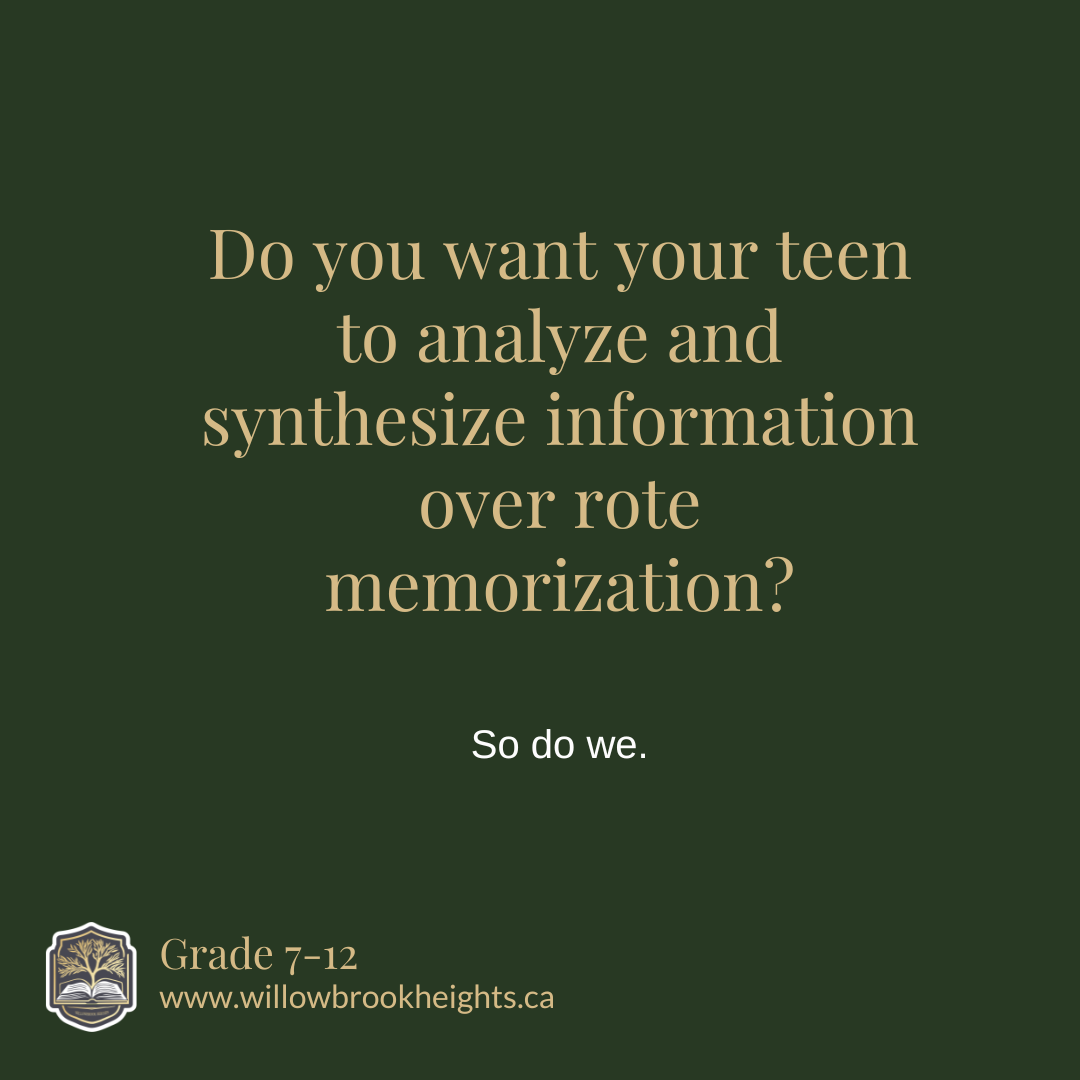"Elementary and high schools spend so much time on the content-laden curriculum that students are unprepared for the analytic and conceptual thinking they'll need at university" - ALAN SLAVIN | SEP 10 2007
Articles such as this underscore Willowbrook Heights’ commitment to exceeding Ontario’s educational benchmarks. Unlike the skills-focused approach common in many Ontario high schools, our curriculum emphasizes a robust foundation in knowledge, critical thinking, analysis, debate, and open discourse. These core competencies enable our students to think clearly, reason effectively, and articulate their ideas persuasively.
University professors have noted a decline in students’ analytical abilities since the implementation of Ontario’s curriculum guidelines. This observation reinforces our belief in the importance of cultivating these essential skills. By providing a rich academic experience, we prepare our students to surpass their peers from traditional schools and excel in higher education and beyond
Key take aways from this article:
- High school students are poorly trained for university expectations. Students’ ability to do analysis has been stifled by an overly demanding curriculum that emphasizes vocational skills rather than fostering mastery of core skills.
- There is always a certain amount of material that must be memorized, but knowledge of facts makes up only a small component of one’s learning. More important is the ability to relate these facts in new ways, to see them in a new light, and to bring quite disparate ideas together to solve new problems or create new forms of art. This ability to analyze and synthesize is what makes good scientists, writers, philosophers and artists. It is the ability needed to drive a knowledge-based economy.
- Moreover, the new (Ontario) curriculum significantly reduces time spent on the visual arts, and was so content-heavy that it greatly limited the amount of time available for developing analytical and conceptual-understanding skills
- Moreover, the review teams for all of physics, chemistry, biology and earth sciences agreed that:
- a) The existing curriculum is too ambitious and focuses on breadth instead of depth;
- b) Some topics are clearly too advanced for grade 11/12 students and should be dropped;
- c) There is a yawning gap between the ambition of the curriculum and the reality of students entering University. Students continue to demonstrate serious deficiencies in problem solving skills, basic math skills, and hands-on laboratory skills when they arrive at the university level.
This ability to analyze and synthesize is what makes good scientists, writers, philosophers and artists. It is the ability needed to drive a knowledge-based economy.


